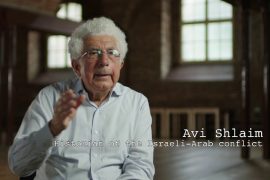1) Yoni Ben Menachem explains Hamas’ silence regarding events in Nablus.
“It is Hamas that in recent months has pushed the residents of the West Bank and East Jerusalem towards an new armed intifada against Israel while promising that it would actually support such an intifada and assist it by firing rockets from the Gaza Strip.
Hamas also leads a large support campaign on the social media of the “Lions’ Den” group and even transferred more than a million dollars to finance its activities.
However, despite this support, no rockets were fired from the Strip towards Israel.
Beyond statements of support by the leaders of the Palestinian factions and slogans that support the “Lions’ Den” group and the residents of Nablus, no real step has been taken on the ground.”
2) At the INSS, Orna Mizrahi analyses the agreement between Israel and Lebanon.
“The agreement between Israel and Lebanon is a win-win situation, notwithstanding the criticism leveled against it. The maritime arrangement is indeed a compromise, yet one that serves the interests of both states, and most important, does not harm – and even contributes to – Israel’s national security. What does the agreement include, and what are the interests of the respective parties?”
3) Ben Dror Yemini gives his views on the UN commission of inquiry’s latest report.
“Hamas, which is undoubtedly happy with the report, is not even mentioned in it. Other words not mentioned in the report include: “Jihad,” “terror” and “rockets”. The committee’s information sources include many radical Israeli far-left organization and outlets, such “B’Tselem” – mentioned 17 times, “Peace Now” – 12 times, and “Haaretz” – 10 times.”
4) WINEP presents a study of the Houthi relationship with the IRGC and Lebanese Hezbollah.
“A fragile U.N.-brokered ceasefire between the Houthis and their military opponents in Yemen’s Presidential Leadership Council held from April to October 2022 but has now lapsed. The Houthis hold the key to an enduring ceasefire in Yemen and can threaten the stability of Red Sea shipping lanes and the security of the United States and its partners in the Middle East. All these considerations necessitate a fuller understanding of the Houthi political-military leadership, its core motivations, and the nature and extent of Iranian and Lebanese Hezbollah influence within the movement. This study argues that the Houthi movement is now more centralized and cohesive than ever, in part due to close mentoring from Lebanese Hezbollah and Iran’s Islamic Revolutionary Guard Corps. The Houthi Jihad Council is emerging as a remarkable partner for Iran, and their relationship should no longer be viewed as one of necessity, but rather as a strong, deep-rooted alliance underpinned by tight ideological affinity and geopolitical alignment. The emergence of a ‘southern Hezbollah’ is arguably now a fact on the ground.”





